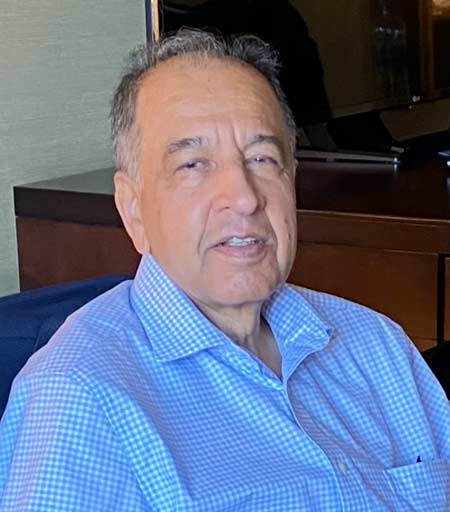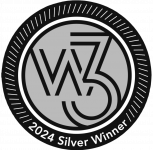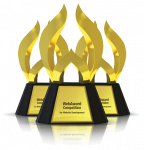Prompted by the encouraging results of the U.S. semiconductor manufacturing initiative introduced about a year ago, the council of the European Union (EU) in July 2023 approved a €43 billion ($47.5 billion) plan called Chips Act to develop more fabs and increase semiconductor production in the European region. The plan is to boost the supply of semiconductor devices in Europe, and reduce its dependency on Asian suppliers, as well as invest more in semiconductor research in Europe. In fact, according to EU, this act is expected to improve the EU’s global market share from 10% to about 20% by 2030.
As a result, several countries are actively building semiconductor fabrication plants to increase the production of semiconductor chips in Europe. For example, Ireland has the ongoing Intel F34 facility, which is currently on track for production capability in 2023. While Germany is witnessing the largest increase in capacity as several new fabrication projects are underway. Similarly, other countries such as France, Poland, Spain, and Italy are also witnessing new fabrication projects in the 2023-2024 timeframe.
Recently, under the framework of European Chips Act, semiconductor giant Infineon Technologies AG announced collaboration with TSMC, Robert Bosch GmbH and NXP Semiconductors. The four giants plan to invest in European Semiconductor Manufacturing Company (ESMC) GmbH, in Dresden, Germany. While the deal is considered as a tremendous milestone in the globalization of semiconductor manufacturing, it is also believed to provide incentive to European semiconductor manufacturing.
According to the partners, ESMC marks a significant step towards the construction of an advanced 300-mm (12-inch) FinFET capable semiconductor fabrication facility using CMOS technologies. Aimed at supporting the future capacity needs of the fast-growing automotive and industrial sectors, the chip production is expected to utilize 28-12 nm nodes. Also, this joint venture (JV) will be 70% owned by TSMC, with Bosch, Infineon, and NXP each holding 10% equity stake, subject to regulatory approvals and other conditions. Total investments are expected to exceed 10 billion euros (US$10.90 billion) consisting of equity injection, debt borrowing, and strong support from the EU and German government. The fab will be operated by TSMC.
As per the plan, the new fab is expected to have a monthly production capacity of 40,000 300-mm wafers on TSMC’s 28/22 nm planar CMOS and 16/12 nm FinFET process technology.
In addition, it will also develop technology variants with a special focus on innovative differentiating technologies like automotive applications, embedded flash, RRAM, MRAM, radio frequency (RF) and other non-volatile memories.
The partners claim that the JV will be the first, and so far, only pure play foundry to establish a sustainable mass production with FinFET capability on EU soil. The targeted industries include automotive, industrial, IoT and telecommunications market sectors.
“This investment in Dresden demonstrates TSMC’s commitment to serving our customers’ strategic capacity and technology needs, and we are excited at this opportunity to deepen our long-standing partnership with Bosch, Infineon, and NXP,” said CC Wei, chief executive officer of TSMC. “Europe is a highly promising place for semiconductor innovation, particularly in the automotive and industrial fields, and we look forward to bringing those innovations to life on our advanced silicon technology with the talent in Europe.”
Similarly, Stefan Hartung, chairman of the Bosch board of management, stated, “Semiconductors are not only a crucial success factor for Bosch. Their reliable availability is also of great importance for the success of the global automotive industry. Apart from continuously expanding our own manufacturing facilities, we further secure our supply chains as an automotive supplier through close cooperation with our partners. With TSMC, we are pleased to gain a global innovation leader to strengthen the semiconductor ecosystem in the direct vicinity of our semiconductor plant in Dresden.”
“Our joint investment is an important milestone to bolster the European semiconductor ecosystem. With this, Dresden is strengthening its position as one of the world’s most important semiconductor hubs that is already home to Infineon’s largest frontend site,” noted Jochen Hanebeck, CEO of Infineon Technologies. “Infineon will use the new capacity to serve the growing demand particularly of its European customers, especially in automotive and IoT. The advanced capabilities will provide a basis for developing innovative technologies, products and solutions to address the global challenges of decarbonization and digitalization, added Hanebeck.”
NXP president and CEO Kurt Sievers asserted, “NXP is very committed to strengthening innovation and supply chain resilience in Europe.” “We thank the European Union, Germany, and the Free State of Saxony for their recognition of the semiconductor industry’s critical role and for their true commitment to boost Europe’s chip ecosystem. The construction of this new and significant semiconductor foundry will add much needed innovation and capacity for the range of silicon required to supply the sharply increasing digitalization and electrification of the automotive and industrial sectors.”
In summary, TSMC will operate the fab according to the foundry business model, which means that the JV will be open to any customer beyond Bosch, Infineon and NXP. Consequently, said the partners, this fab will operate as an open foundry to produce logic/mixed-signal/embedded non-volatile memory semiconductor chips required mainly by the European automotive, industrial, IoT and telecommunications customers. The construction of the new fab will begin in the second half of 2024 with production targeted to begin by the end of 2027.






